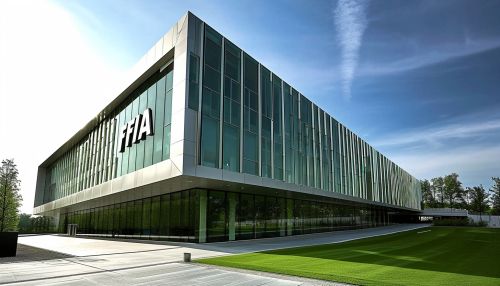International Federation of Association Football
History
The International Federation of Association Football (FIFA) was founded in 1904 to oversee international competition among the national associations of Belgium, Denmark, France, Germany, the Netherlands, Spain, Sweden, and Switzerland. Headquartered in Zurich, it is an association governed by Swiss law primarily made up of 211 national member associations.


Structure
FIFA is composed of several divisions including the Congress, Executive Committee, General Secretariat, and various other committees. The Congress, which is the supreme legislative body, is composed of representatives from each affiliated member association. The Executive Committee, meanwhile, is a type of executive board composed of members elected by the Congress.
Competitions
FIFA organizes and oversees major international football competitions, notably the FIFA World Cup, which commenced in 1930 and the FIFA Women's World Cup, which commenced in 1991. Other competitions under its purview include the FIFA U-20 World Cup, FIFA U-17 World Cup, FIFA Club World Cup, and FIFA Beach Soccer World Cup.
Governance and Ethics
FIFA has a dual governance structure, with the decision-making bodies separated from the executive bodies. The organization is committed to promoting integrity, ethics, and fair play in order to protect the spirit of the game. FIFA's governance also includes a strong commitment to social responsibility and community engagement.
Criticisms and Controversies
FIFA has faced numerous criticisms and controversies throughout its history, including allegations of corruption, lack of transparency, and poor handling of issues such as doping and workers' rights. These controversies have led to significant reforms within the organization.
